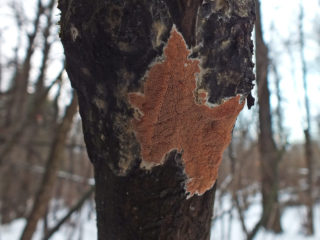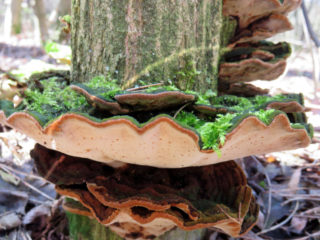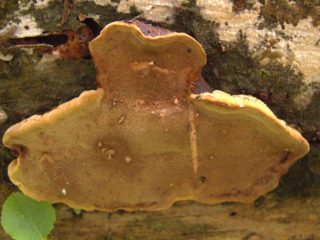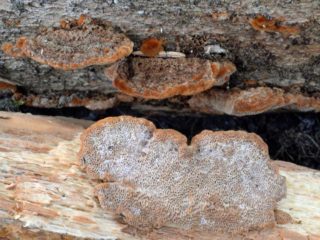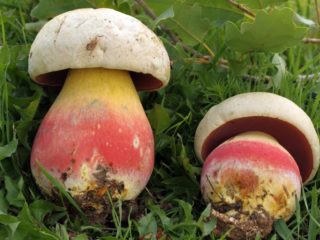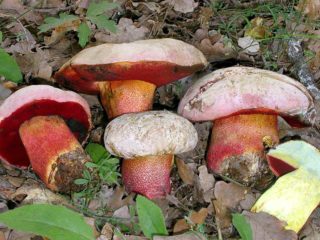Content
Phellinus smoothus is a perennial tinder fungus that parasitizes wood. Belongs to the Hymenochetaceae family.
What does phellinus smoothed look like?
The fruiting bodies are round or oblong, hard, leathery, thin, most often prostrate, rarely bent-prostrate. They grow very tightly to the substrate (rotting wood). The litter is hard, light brown or brownish brown. The surface has a silky shine, wavy, uneven, light brown, chestnut, brown, and in spring pinkish-grayish-brown. The edges are slightly raised, have the appearance of a pubescent narrow ridge, and in older specimens they lag behind the wood.
The hymenophore is usually layered, the walls of the tubes are thin, the pores are round or slightly elongated, very small. Young mushrooms develop singly, then merge into irregularly shaped formations up to 25 cm long.
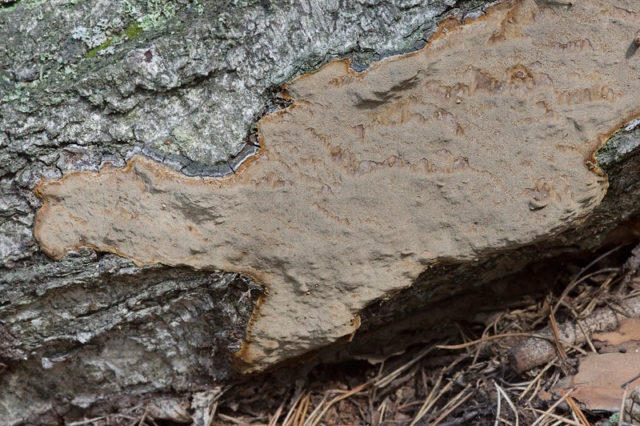
Tinder fungus parasitizes trees
A similar species is Phellinus Lundell. The main difference between the smoothed one is the very small pores and the roll-shaped edge. Lundella is found quite often and regularly, mainly in old-growth forests.It most often grows on birch trees, sometimes on alder and very rarely on other deciduous trees (on dead wood, stumps, dead wood, and sometimes on living weakened trees). Causes white rot. It can be prostrate or prostrate-bent, and is of medium size. The bent part of young mushrooms is smooth, in old ones it is covered with cracks, the color is dark brown, sometimes almost black. The litter is dense, thin, brownish-red, or light brown. The surface with the hymenium is smooth, brown or reddish, in spring it acquires a grayish tint, there is no silky sheen. The tubes are rusty in color, the layering is not expressed. The pores are quite small and round. The mushroom is inedible.
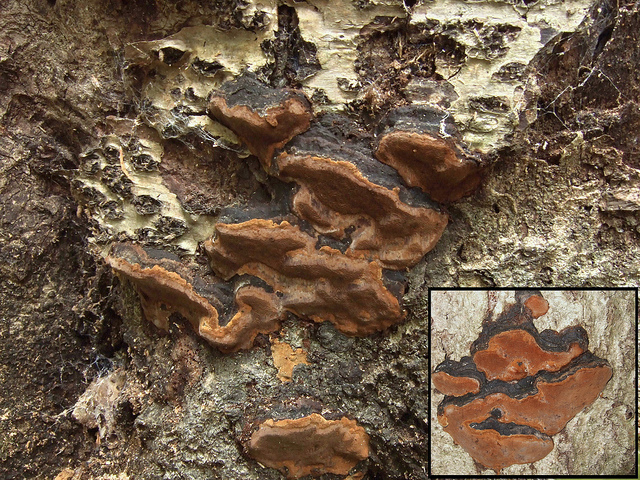
Lundell's tubules have a rusty tint
Where does Phellinus smootha grow?
In Russia it is found throughout the forest zone. Happens regularly, but quite rarely. The most common place of growth is fallen and rotting trunks, twigs and branches of birch.
Is it possible to eat Phellinus smoothed?
The tinder fungus is an inedible species. It is not eaten and is of no interest to mushroom pickers.
Conclusion
Phellinus smoothus is a parasite that causes white rot, which destroys wood. In the affected areas you can see threads of brown mycelium. Its main difference from related prostrate species is its very small pores.
